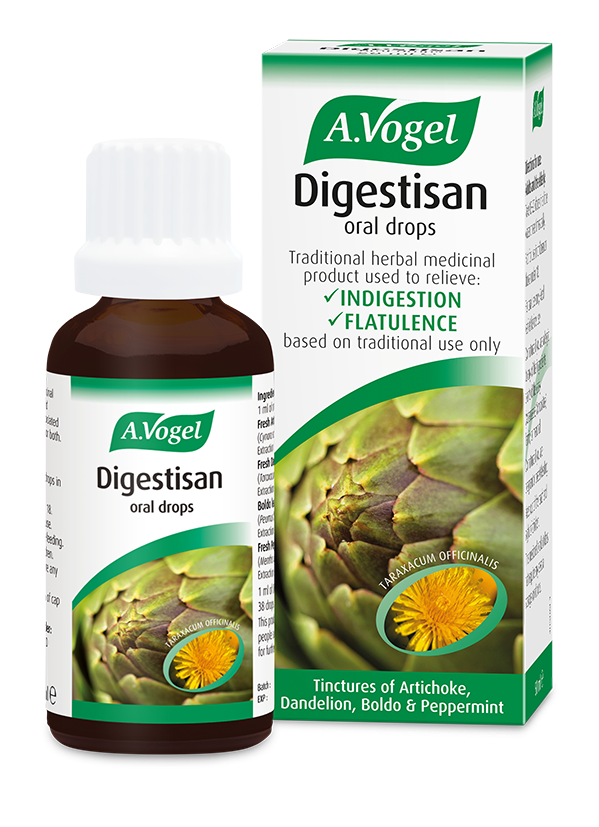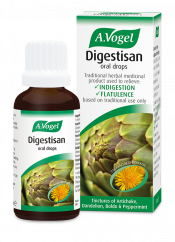An introduction to gastritis
Gastritis is the term used for inflammation or irritation of the stomach lining. It is a fairly common condition with a range of causes: from eating foods that you don’t quite agree with, to using certain types of medicines such as painkillers. Generally, people experience symptoms they describe as indigestion, such as bloating, upper abdominal discomfort, heartburn or a feeling of fullness.
We now know that a common cause of gastritis and indigestion is infection by a type of bacteria known as Helicobactor pylori. Although it is important to eliminate this possibility, we should also consider dietary and lifestyle factors which may be contributing to the condition.
What are the different types of gastritis?
The condition of gastritis is classified by doctors and scientists in a number of ways. These include:
- Acute Gastritis. A severe, short-term bout of inflammation is classed as acute gastritis. This is likely to be caused by infection or a sudden change in diet or lifestyle. The pain experienced can be severe, feeling very sharp, but is likely to only last for a few days. Acute gastritis can be erosive (often associated with damage to the stomach, for example if the stomach lining has become worn, is typically characteristic of ulcers on the lining of the stomach, and bleeding is common) or non-erosive, usually caused by bacteria.
- Chronic gastritis. If symptoms are prolonged, chronic gastritis may develop. Chronic gastritis is more likely to occur with age. The stomach lining becomes thinner as we get older, making it more at risk of becoming inflamed. Chronic gastritis can also be classified as erosive if there are physical changes to the stomach, for example if the lining becomes worn down. A combination of a vulnerable tummy and poor lifestyle choices are notable risk factors
- Atrophic gastritis is a class of end-stage chronic gastritis. After many years of inflammation, glandular cells of the stomach can become damaged beyond repair. The various types of cells of the glands of the stomach secrete a number of important digestive juices so our digestion is likely to be impaired if these are affected
- Autoimmune atrophic gastritis occurs when your body produces antibodies against the healthy cells of our stomach. This not only affects the cells themselves but can also affect a substance called intrinsic factor which if depleted can give rise to a vitamin B12 deficiency.
If the cause of your symptoms isn’t clear or your symptoms are severe and fail to subside after a few days, a trip to your doctor may be necessary to help make a diagnosis.
An endoscopy can be carried out to detect inflammation in the stomach. A blood, breath or stool test may also be required to investigate if the bacteria Helicobacter pylori (H. Pylori) are present.
Causes of gastritis
Gastritis may be the result of a number of causes, these can include:
- Infection – H. Pylori can affect the digestive tract and cause the stomach lining to become irritated
- Injury – physical damage to the stomach due to an accident, illness or surgery can cause inflammation
- Diet – certain aspects of your diet can contribute to gastritis; high-fat foods and alcohol are common irritants
- Medication – a common class of painkillers, NSAIDs, which include aspirin and ibuprofen, block protective mechanisms in place in the stomach which are there to prevent stomach acid attacking our stomach lining. If these are affected your stomach can suffer as a result
- Conditions – certain conditions, such as autoimmune diseases – where your immune system begins to attack your healthy body tissues – can cause gastritis. One example of an autoimmune disease affecting the digestive tract is Crohn’s disease
- Aging – as you grow older your stomach lining becomes thinner making it more susceptible to inflammation
Click on the links above to explore the causes of gastritis in more detail.
Gastritis symptoms
Symptoms of gastritis can vary in severity depending on if it is an acute or chronic case. Generally, acute gastritis gives rise to pronounced symptoms whereas in a chronic episode they are generally milder, but present over an extended period of time.
- Stomach pain – as the stomach is inflamed, pain is common. This can vary in severity. Indigestion may also occur which can give rise to heartburn
- Loss of appetite – you may find you feel full after only a very small amount of food
- Nausea or vomiting – you may feel nauseous or even experience vomiting in severe episodes
- Indigestion – indigestion literally means ‘improper digestion’ and can indicate the stomach is distressed
- Blood in vomit or in stools – if inflammation is causing the stomach to bleed this can appear in vomit or as the blood travels through the digestive system, stools can appear black and tarry.
Visit our gastritis symptoms pages by clicking on the links above to learn more about these symptoms and why they might be happening.
Treatments
There are a range of lifestyle choices, natural remedies and conventional treatments useful in the treatment of gastritis, depending on the type and severity of your symptoms. Click on the links above to explore these in more detail.
Long-term lifestyle habits are of particular importance in order to help prevent future episodes.
Top tip: Digestisan drops contain artichoke, dandelion, boldo and peppermint. The combination of stomach bitters in this herbal remedy work to naturally stimulate the secretion of digestive juices.








